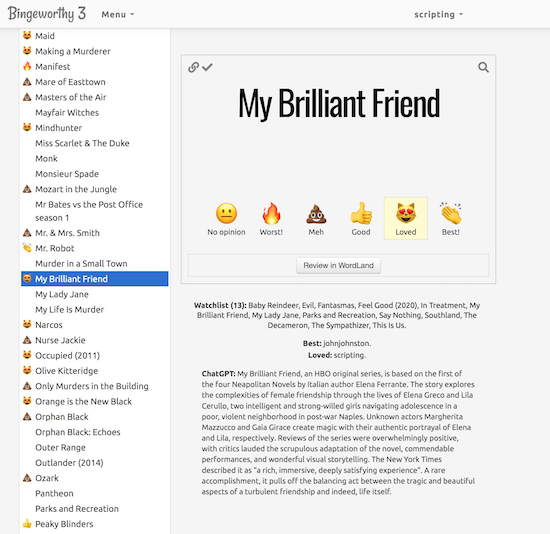“Any idea why any of the guys working upstairs would have come partway down the path outside my living room this afternoon?” I asked my landlord last Thursday. “Saw him walk past one window, not ever appear at the next window, and then a minute or two later walk back out to the front again, so he was doing something in that minute or two.”
Alex Baumhardt:
On Monday, the USDA notified states that there would be no November funding, and Oregon’s human services agency on Monday notified recipients they would not be receiving the assistance after Oct. 31.
In a reply to Baumhardt on Bluesky, I mentioned that in fact I very much have not been notified, and only learned of this from Oregon Capital Chronicle and from Alejandro Figueroa at OPB.
To make this even more ridiculous, reporting requirements continue during this lack of SNAP. While it’s technically true that it’s most likely possible to do a one-off replacement of the SNAP funds that aren’t coming in November due to the Republicans’ government shutdown, it’s also true that I’d then have to report that to the state as income, which then can impact my program eligibility level.
“I’m not sure but we will address it,” my landlord replied to me last Thursday.
This morning began with leaf blowers outside my bedroom window at 8:45 AM, and continued with the apartment renovation noises kicking in around 12:15 PM, which admittedly is much later in the day than usual but also is not “not at all”.
When I left the apartment this afternoon to go for my usual hour sitting outside my regular coffeeshop to read over a decaf americano, I noticed something new at the sidewalk. “Does the existence of a portapotty outside today answer my original question?” I sent my landlord.
Now that my fears are confirmed, I have to wonder just how much urine is outside my living room windows, because the renovations have been ongoing for a month. I should note that the guy in question is here today, which means urinating outside a tenant’s window apparently is not considered to be a fireable offense.
What’s more, now I get anxiety every time I leave my apartment or return to it and I see the guy outside. This comes on top of the ongoing, continuing nervous system dysregulation of the noise of the renovations itself, because even needing to wear earplugs or headphones all day in my own house itself creates its own psychic weight.
Just before writing this, I had to go on a quick grocery errand. Sitting here afterward and writing this all out, my heart rate remained at around 117 BPM. At publication time, it was still 105 BPM.
So, if you’re wondering how the autistic burnout is going, and the denial of any real opportunity to recover, wonder no more.
Addenda
-
Not more than about half an hour after posting this, the Health app sent me an alert: there’d been a new trend spotted in my time asleep. It seems that on average I’ve gone from 8h:34m of sleep per night to 7h:23m of sleep over the past twenty-two weeks, going back to the end of May.
That puts the new trend starting around the time I did that big Saturday push to go to the Forestry Center for a Twin Peaks thing and then tacked on a side trip to Oregon Zoo, all of which then hammered me pretty hard. Two weeks later, I marched in No Kings and then just days after pushed to do the day trip to Seattle for baseball, all of which hammered me pretty hard.
One month later, I laid out how dark I consider any future for me that involves having no independent movement, followed quickly by the entire “behind my back” disability lawyer thing, et cetera et cetera et cetera, all of which has hammered me pretty hard.
Such a dramatic and dysregulating shift in sleep should not come as any surprise, but it’s always nice to have actual data to back up that something is wrong, and everyone and everything really needs to clear the fuck out of my way. Even though, as the original post shows, this clearly isn’t going to happen any time soon.
-
So, while I wait for official confirmation from my landlord that their workers have been peeing outside my living room windows, and that’s why there’s now a portapotty out front, one of them once again this evening around my dinnertime just did whatever it is they do for that 30-60 seconds between my living room windows.
It’s bad enough that the renovation noise in and of itself is part of why I’m not able to try to recover from autistic burnout, but now I no longer feel comfortable or, frankly, safe around the people they’ve hired to do the work. It’s no wonder my heart has continued to hover right around 100 BPM for the past two hours.
What’s more, they continue to linger out there despite the workday being done, depriving me of my self-regulating time out front reading over coffee or at least having a coffee and cookie, before it gets dark. It’s not enough for them to contribute to my increasing dysregulation, they have to steal my capacity to engage in self-regulating behaviors, too?
-
If it wouldn’t only cause me more dysregulation from being on public display, I’d walk down to Stormbreaker and ask to use the rage room.
I’m tired.
I’m tired of being autistic.
I’m tired of being trapped.
-
Sometimes I wish I were suicidal. (I'm not.) At least then it would seem like there were something I could do. Instead of there being nothing I can do.
-
For the record, it is the next afternoon and I still have not had a single communication from the landlord since “we will address it” back on Thursday.
Reply by email • Tip $1/month • Thank you for using RSS • Oct. 25: Birthday




